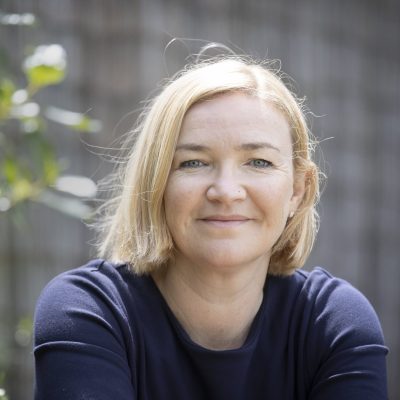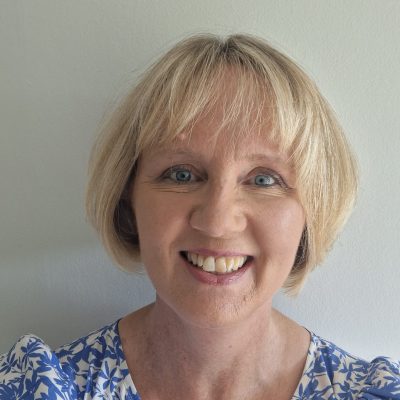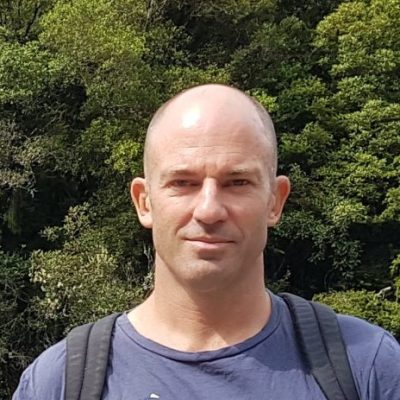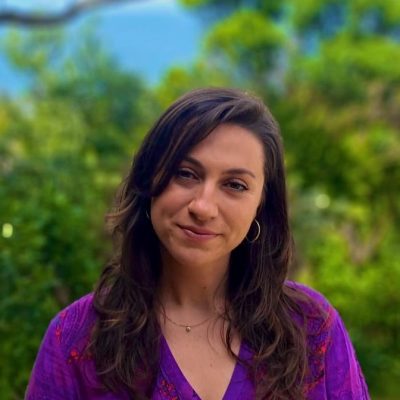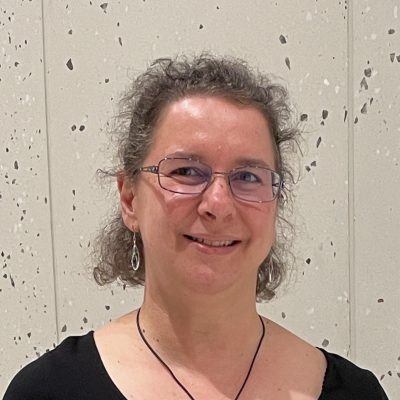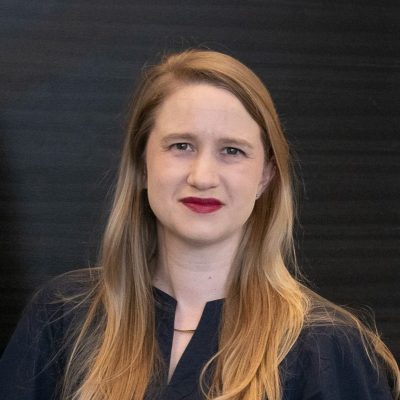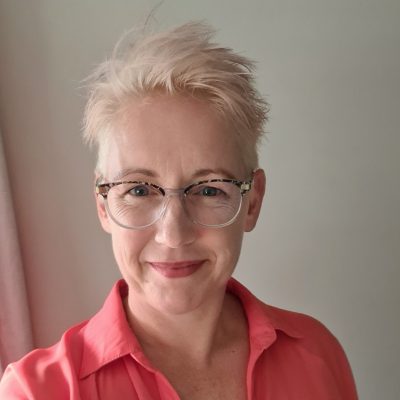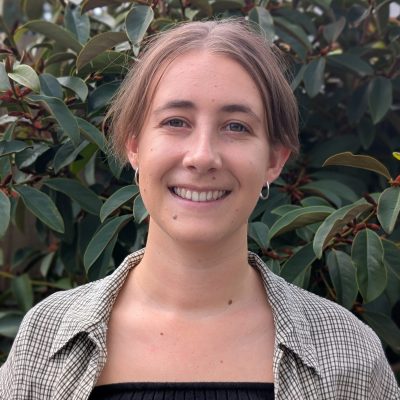List of contributors
Editors
Sarah Riley is a Professor in Critical Health Psychology, at Massey University, Aotearoa New Zealand. Her award-winning, transdisciplinary research has explored multiple topics through the lens of subjectivity and power. She has worked in multiple successful collaborations with leaders in the field. Her co-authored books include Technologies of Sexiness (2014), Postfeminism and Health (2019), Postfeminism and Body Image (2022), and Digital Feeling (2023). Her co-edited books include Critical Bodies (2008), Doing Your Qualitative Psychology Project (2024), and Doing Qualitative Research in Psychology (2025). Her current projects explore relationships between gender and digital technologies, funded by the New Zealand Royal Society Te Apārangi. She is a senior fellow of the HEA, winner of the Massey University teaching award 2024, and past chair of both the International Society for Critical Health Psychology, and the British Psychology Society’s Qualitative Research in Psychology Section.
ORCID ID: https://orcid.org/0000-0001-6712-6976
Website: https://www.massey.ac.nz/massey/expertise/profile.cfm?stref=060550
Kathryn McGuigan is a senior lecturer in Health and Social Psychology at Massey University, Auckland campus, New Zealand. Her research interests are broadly in the area of critical health psychology using qualitative methodologies. More specifically Kathryn is interested in exploring the intersections of health and wellbeing within disability, neurodivergence, eating and food practices, and gender. Kathryn is a passionate ally for social justice for disability and neurodiversity, with recent research focusing on neurodivergent tertiary students’ experiences. Kathryn is also passionate about innovative qualitative methods, including arts-based research.
ORCID ID: https://orcid.org/0000-0003-0440-8698
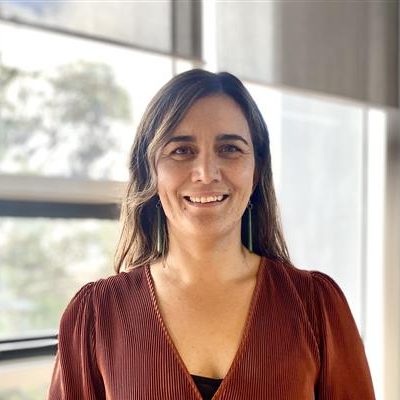
name: Eleanor Brittain, (Ngāti Kahungunu ki Te Wairoa, Ngāti Rakaipaaka), DPsych, MA, BA
institution: Massey University
Elle Brittain is a senior lecturer in the School of Psychology at Massey University, a colleague of the Centre for Indigenous Psychologies, and a practicing clinical psychologist. Her research focuses on Māori experiences as related broadly to psychology, including Māori wellbeing, wairua, spirituality, culturally centred psychological interventions, equity in mental health, as well as racism and anti-racism. In her work to understand sites of crisis for Māori communities, she recognises and explores sites of resistance and strength in order to contribute meaningfully to knowledge and action. Dr Brittain also teaches undergraduate courses in Indigenous psychologies and clinical psychology. Ultimately, she sees her work as in service of communities to facilitate change and work towards equity.
ORCID ID: https://orcid.org/0009-0008-8984-8476
Website: https://www.massey.ac.nz/massey/expertise/profile.cfm?stref=076522
Website: https://www.indigenouspsychologies.nz/
Gareth Terry is broadly interested in the intersections of gender, bodies, and health. His research has explored men’s sexual and reproductive health and decision-making, and men’s embodiment and experiences of illness, injury, and body modification. He has also contributed to research exploring the decision to be “childfree” (for men and women), sexual consent practices (and implications of these for sexual violence), reproductive health in mid-life, and most recently, work in rehabilitation, disability and access (informed by critical rehabilitation studies). Gareth teaches about qualitative methods (especially reflexive TA) in university courses and through workshops (online and in person). He has written many chapters related to qualitative methods, with various combinations of Virginia Braun, Victoria Clarke, and Nikki Hayfield. He is co-author, with Nikki, of Essentials of Thematic Analysis, part of The Essentials of Qualitative Methods series from the American Psychological Association.
Website: https://www.massey.ac.nz/massey/expertise/profile.cfm?stref=775822
Bluesky: https://bsky.app/profile/garethterry.bsky.social

name: Aorangi Kora, (Te Whakatōhea, Ngāti Kauwhata, Rangitāne, Ngāti Porou, Kai Tahu, Rongowhakaata), BAS, GradDipArts, MSc
institution: Massey University
Aorangi Kora is currently a Māori doctoral student within the School of Psychology, Massey University. She is affiliated to the Centre for Indigenous Psychologies, School of Psychology, Massey University, Manawatū, with experience in various teaching and research capacities within the Centre. Her research expertise is on Kaupapa Māori and decolonising research methodologies, with a particular focus on hauora Māori (Māori wellbeing), critical health psychology, te taiao (the natural environment), and Māori experiences of digital technologies.
ORCID ID: https://orcid.org/0009-0003-6023-2874
Siobhán Healy-Cullen is a postdoctoral researcher at Massey University, New Zealand, working in the field of critical health and social psychology. Broadly speaking, her research explores gender, sexualities, and sexual socialisation using a range of critical, qualitative research methods. More specifically, she uses a social justice lens to understand psychological issues as located in socio-political, historical contexts, particularly within the current cultural climate, which places a high value on neoliberal economics and individualism. She is particularly invested in questioning taken-for-granted ideas about what “good” “healthy” sex/uality is, especially for young people. Siobhán has published on topics that relate to intersections of gender, power, and sexuality, such as pornography, “porn literacy”, sexual consent, sexual violence, “chemsex”, and sexual scripting theory. Her work on pornography joins a growing body of international scholarship that challenges the dominant protectionist, patronising, and disciplinary lens on young people and their sexualities.
ORCID ID: https://orcid.org/0000-0003-3843-4966
Website: https://www.massey.ac.nz/massey/expertise/profile.cfm?stref=236450
ResearchGate: https://www.researchgate.net/profile/Siobhan-Healy-Cullen
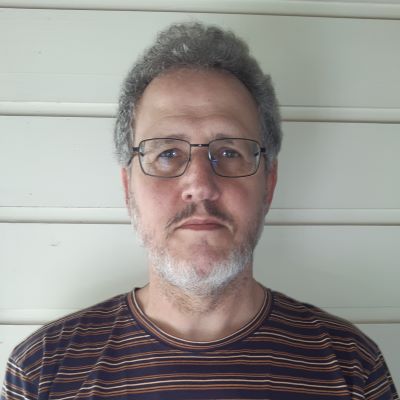
name: Clifford van Ommen, BSc(Hons), MA, DLitPhil
institution: Massey University
Clifford van Ommen is an associate professor in the School of Psychology at Massey University, Auckland. He is interested in the socio-politics of rental housing, particularly in Aotearoa-New Zealand, and the consequences of this for the wellbeing of renters. He has a background in critical psychology, with previous research focussing on, amongst others, the history of psychology, neuroscience and subjectivity, racism, and precarity. He is a registered clinical and neuropsychologist.
ORCID ID: https://orcid.org/0000-0001-8460-3818
Website: https://www.massey.ac.nz/massey/expertise/profile.cfm?stref=148040

name: Don Baken, BA(Hons), PhD, PGDipClinPsych
institution: Massey University
Don Baken is an associate professor and a senior clinical psychologist who is part of the leadership team at the Massey University Psychology Clinic on the Manawatū Campus, where he is the research coordinator. Most of his clinical work has been in the area of psycho-oncology. He has held leadership roles in psychosocial oncology at the district, regional and national levels. His research interests are in the area of cancer, myalgic encephalomyelitis/chronic fatigue syndrome and long COVID. Additionally he has interest in virtues, particularly forgiveness and humility.
ORCID ID: https://orcid.org/0000-0001-8840-6109
Website: https://www.massey.ac.nz/massey/expertise/profile.cfm?stref=799430
Contributors

name: Don Baken, BA(Hons), PhD, PGDipClinPsych
institution: Massey University
Don Baken is an associate professor and a senior clinical psychologist who is part of the leadership team at the Massey University Psychology Clinic on the Manawatū Campus, where he is the research coordinator. Most of his clinical work has been in the area of psycho-oncology. He has held leadership roles in psychosocial oncology at the district, regional and national levels. His research interests are in the area of cancer, myalgic encephalomyelitis/chronic fatigue syndrome and long COVID. Additionally he has interest in virtues, particularly forgiveness and humility.
ORCID ID: https://orcid.org/0000-0001-8840-6109
Website: https://www.massey.ac.nz/massey/expertise/profile.cfm?stref=799430
Paulina Bondaronek is a multidisciplinary researcher with expertise in health psychology, behavioural science, and data science. She has worked in academic, public sector, and digital health organisations, including roles at Public Health England and the Department of Health and Social Care in the UK. Her current work combines health psychology and qualitative research with data science methods like natural language processing to examine social inequalities and algorithmic bias in artificial intelligence systems. She previously contributed to the GOV.UK resource Evaluating Digital Health Products and has led public health projects to apply behavioural science tools to pressing health challenges. Paulina focuses on improving human-technology collaboration to address algorithmic bias, particularly in underserved communities, through projects that integrate behavioural science and data analysis to mitigate bias in health-related AI systems.
ORCID ID: https://orcid.org/0000-0003-0096-1234
Website: https://profiles.ucl.ac.uk/39768-paulina-bondaronek

name: Eleanor Brittain, (Ngāti Kahungunu ki Te Wairoa, Ngāti Rakaipaaka), DPsych, MA, BA
institution: Massey University
Elle Brittain is a senior lecturer in the School of Psychology at Massey University, a colleague of the Centre for Indigenous Psychologies, and a practicing clinical psychologist. Her research focuses on Māori experiences as related broadly to psychology, including Māori wellbeing, wairua, spirituality, culturally centred psychological interventions, equity in mental health, as well as racism and anti-racism. In her work to understand sites of crisis for Māori communities, she recognises and explores sites of resistance and strength in order to contribute meaningfully to knowledge and action. Dr Brittain also teaches undergraduate courses in Indigenous psychologies and clinical psychology. Ultimately, she sees her work as in service of communities to facilitate change and work towards equity.
ORCID ID: https://orcid.org/0009-0008-8984-8476
Website: https://www.massey.ac.nz/massey/expertise/profile.cfm?stref=076522
Website: https://www.indigenouspsychologies.nz/
Sonja J. Ellis is an associate professor at The University of Waikato, and a longstanding researcher in the field of LGBTIQ+ Psychology. Her research over more than 25 years has included a number of projects that focus on health-oriented topics relating to LGBTIQ+ people and lives, including trans mental health, cervical screening in lesbian and bisexual women, and contraceptive use and access among LGBTQ+ people assigned female at birth. Much of Sonja’s recent research draws on critical health psychology as an approach for understanding health inequities among LGBTIQ+ people. Sonja is co-author of the textbook Lesbian, Gay, Bisexual, Trans, Intersex and Queer Psychology: An Introduction (Cambridge University Press), now in its third edition.
ORCID ID: https://orcid.org/0000-0003-3502-7724
Website: https://profiles.waikato.ac.nz/sonja.ellis
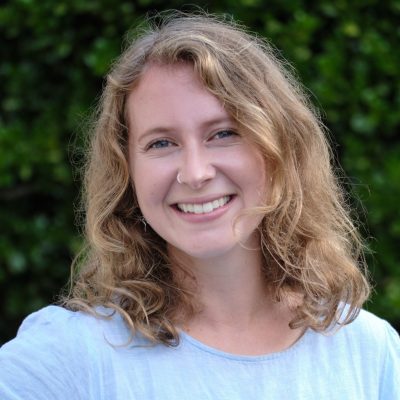
Gloria Fraser is a lecturer in health psychology at Te Herenga Waka – Victoria University of Wellington. Gloria is interested in mental health, identity and culture, and how academic teaching and research can make change in the real world. She has previously conducted community-based research about Rainbow peoples’ experiences of accessing mental health support and gender-affirming healthcare. Currently, Gloria’s work focusses on eating disorders and body image, particularly among Māori, and increasing the cultural responsivity of clinical frameworks. Gloria spends a lot of time thinking about the transformative potential of friendship, and how she can disrupt productivity and optimisation culture through slow scholarship. When not at mahi, you will find her reading a book in the company of her extremely beautiful cat, or running on Wellington’s south coast.
ORCID ID: https://orcid.org/0000-0002-7696-7280
Website: https://people.wgtn.ac.nz/gloria.fraser
Ally Gibson is a senior lecturer in health psychology and Programme Director of Health Psychology at Victoria University of Wellington. Ally specialises in qualitative research at the intersections of health psychology, sociology, and public health. Her research spans diverse topics, including sexual and reproductive health, gender and identity, and the experiences of marginalisation in health contexts. Ally currently leads three projects: mobile dating during COVID-19, psychosocial support for cancer patients, and the application of artificial intelligence in qualitative research. Committed to critical approaches in health psychology, Ally brings expertise in discursive methods and values collaboration with public sector organisations and NGOs. She is passionate about promoting equity and meaningful inclusion in health research and practice.
ORCID ID: https://orcid.org/0000-0002-9976-964X
Website: https://people.wgtn.ac.nz/ally.gibson
Rebekah Graham is a registered community psychologist and is employed as the National Executive Officer for Parents of Vision Impaired NZ (PVI). PVI is a national charitable organisation that provides support and advocacy for parents and whānau of a person with a vision impairment. In her role Rebekah advocates strongly and consistently for inclusion, accessibility, and support for all, with a focus on parents/whānau of a vision impaired child. She is the current chair of the Parent/Family/Whānau Network and is particularly interested in creating healthy communities that facilitate human flourishing. Being part of the Waikato Enabling Good Lives demonstration has shown her what is possible when you get the disability support that your family needs to live an ordinary life.
ORCID: https://orcid.org/0000-0002-6576-4023
Website: https://profiles.waikato.ac.nz/rebekah.graham
Siobhán Healy-Cullen is a postdoctoral researcher at Massey University, New Zealand, working in the field of critical health and social psychology. Broadly speaking, her research explores gender, sexualities, and sexual socialisation using a range of critical, qualitative research methods. More specifically, she uses a social justice lens to understand psychological issues as located in socio-political, historical contexts, particularly within the current cultural climate, which places a high value on neoliberal economics and individualism. She is particularly invested in questioning taken-for-granted ideas about what “good” “healthy” sex/uality is, especially for young people. Siobhán has published on topics that relate to intersections of gender, power, and sexuality, such as pornography, “porn literacy”, sexual consent, sexual violence, “chemsex”, and sexual scripting theory. Her work on pornography joins a growing body of international scholarship that challenges the dominant protectionist, patronising, and disciplinary lens on young people and their sexualities.
ORCID ID: https://orcid.org/0000-0003-3843-4966
Website: https://www.massey.ac.nz/massey/expertise/profile.cfm?stref=236450
ResearchGate: https://www.researchgate.net/profile/Siobhan-Healy-Cullen

name: Aorangi Kora, (Te Whakatōhea, Ngāti Kauwhata, Rangitāne, Ngāti Porou, Kai Tahu, Rongowhakaata), BAS, GradDipArts, MSc
institution: Massey University
Aorangi Kora is currently a Māori doctoral student within the School of Psychology, Massey University. She is affiliated to the Centre for Indigenous Psychologies, School of Psychology, Massey University, Manawatū, with experience in various teaching and research capacities within the Centre. Her research expertise is on Kaupapa Māori and decolonising research methodologies, with a particular focus on hauora Māori (Māori wellbeing), critical health psychology, te taiao (the natural environment), and Māori experiences of digital technologies.
ORCID ID: https://orcid.org/0009-0003-6023-2874

Melinda Lewthwaite is a PhD candidate at Massey University, New Zealand. Her PhD research explores experiences of day-to-day dietary practices enacted in response to irritable bowel syndrome (IBS) symptom management. More specifically her research focuses on understandings of healthy eating within the IBS context and dietary practices, which whilst considered to be adaptive, functional and “normal” within IBS populations, have the potential to assemble with wider life contexts and temporalities in ways that can be both helpful and harmful. Melinda’s research interests include understandings of healthy eating, dietary practices associated with self-management of diet related chronic health conditions, orthorexia, and disordered eating/eating disorders. Melinda is interested in qualitative research and the use of assemblage theory and other new materialist theoretical perspectives to explore understandings of food/body practices.
ORCID: https://orcid.org/0009-0004-9462-0143
Website: https://www.massey.ac.nz/massey/expertise/phd-student-profiles/doctoral-my-story.cfm?studid=FucqbFzbytc%3D
Kathryn McGuigan is a senior lecturer in Health and Social Psychology at Massey University, Auckland campus, New Zealand. Her research interests are broadly in the area of critical health psychology using qualitative methodologies. More specifically Kathryn is interested in exploring the intersections of health and wellbeing within disability, neurodivergence, eating and food practices, and gender. Kathryn is a passionate ally for social justice for disability and neurodiversity, with recent research focusing on neurodivergent tertiary students’ experiences. Kathryn is also passionate about innovative qualitative methods, including arts-based research.
ORCID ID: https://orcid.org/0000-0003-0440-8698
Tracy Morison trained as a research psychologist and began her research career at South Africa’s Human Sciences Research Council, where she conducted research addressing societal challenges. Her scholarship focuses on sexual and reproductive health, exploring how social contexts shape decisions and practices. She uses feminist and critical theories with qualitative methods to investigate topics like contraception, abortion, sexual violence prevention, and healthcare access for marginalised groups. Tracy’s research aims to highlight structural barriers to reproductive choices and advocate for equitable health policies. She is committed to making academic knowledge accessible and applicable to real-world issues, including in teaching. Tracy is an associate professor at Massey University’s School of Psychology and the director of the Health Psychology programme. She holds adjunct positions at her alma mater Rhodes University as an honorary research associate, Critical Studies in Sexualities and Reproduction programme and as editor-in-chief of Feminism & Psychology journal.
ORCID ID: https://orcid.org/0000-0001-9088-1662
Website: http://www.tracymorison.com

name: Clifford van Ommen, BSc(Hons), MA, DLitPhil
institution: Massey University
Clifford van Ommen is an associate professor in the School of Psychology at Massey University, Auckland. He is interested in the socio-politics of rental housing, particularly in Aotearoa-New Zealand, and the consequences of this for the wellbeing of renters. He has a background in critical psychology, with previous research focussing on, amongst others, the history of psychology, neuroscience and subjectivity, racism, and precarity. He is a registered clinical and neuropsychologist.
ORCID ID: https://orcid.org/0000-0001-8460-3818
Website: https://www.massey.ac.nz/massey/expertise/profile.cfm?stref=148040
Sarah Riley is a Professor in Critical Health Psychology, at Massey University, Aotearoa New Zealand. Her award-winning, transdisciplinary research has explored multiple topics through the lens of subjectivity and power. She has worked in multiple successful collaborations with leaders in the field. Her co-authored books include Technologies of Sexiness (2014), Postfeminism and Health (2019), Postfeminism and Body Image (2022), and Digital Feeling (2023). Her co-edited books include Critical Bodies (2008), Doing Your Qualitative Psychology Project (2024), and Doing Qualitative Research in Psychology (2025). Her current projects explore relationships between gender and digital technologies, funded by the New Zealand Royal Society Te Apārangi. She is a senior fellow of the HEA, winner of the Massey University teaching award 2024, and past chair of both the International Society for Critical Health Psychology, and the British Psychology Society’s Qualitative Research in Psychology Section.
ORCID ID: https://orcid.org/0000-0001-6712-6976
Website: https://www.massey.ac.nz/massey/expertise/profile.cfm?stref=060550
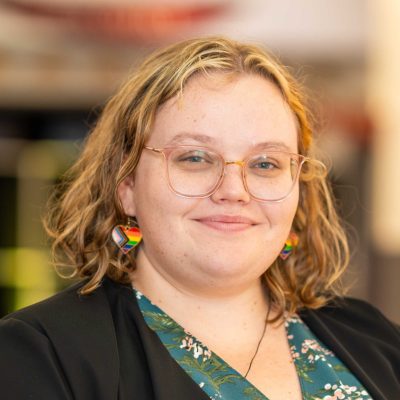
name: Amber Rose, Ngai Tahu
Amber Rose has many years lived experience, and now operates within the political health scape. She works with the United Nations and Te Whatu Ora to advocate for and provide expertise within queer spaces, ensuring everyone in life gets a fair chance and proper treatment.
Jessica Tappin is a senior tutor in the School of Psychology at Massey University (Aotearoa New Zealand). Her research interests lie in the overlapping and broad areas of critical health psychology, gender, sexuality, feminism, and critical media studies. Her PhD research used a feminist poststructural perspective to examine the discursive landscape of women’s sexual desire within media and psychological literature. This focus includes how these prevalent discourses define and delimit women’s opportunity for sexual subjectivity and agency. She teaches various Health Psychology courses at Massey University and is the co-editor of the blog and website for the International Society of Critical Health Psychology (ISCHP) and editorial assistant for Feminism & Psychology. Outside of work, she enjoys exploring the outdoors, working on pottery and knitting projects, and spending time relaxing in the garden with her partner, friends, and fluffy cat.
ORCID: https://orcid.org/0000-0001-7170-0520
Website: https://www.massey.ac.nz/massey/expertise/profile.cfm?stref=680422
Gareth Terry is broadly interested in the intersections of gender, bodies, and health. His research has explored men’s sexual and reproductive health and decision-making, and men’s embodiment and experiences of illness, injury, and body modification. He has also contributed to research exploring the decision to be “childfree” (for men and women), sexual consent practices (and implications of these for sexual violence), reproductive health in mid-life, and most recently, work in rehabilitation, disability and access (informed by critical rehabilitation studies). Gareth teaches about qualitative methods (especially reflexive TA) in university courses and through workshops (online and in person). He has written many chapters related to qualitative methods, with various combinations of Virginia Braun, Victoria Clarke, and Nikki Hayfield. He is co-author, with Nikki, of Essentials of Thematic Analysis, part of The Essentials of Qualitative Methods series from the American Psychological Association.
Website: https://www.massey.ac.nz/massey/expertise/profile.cfm?stref=775822
Bluesky: https://bsky.app/profile/garethterry.bsky.social
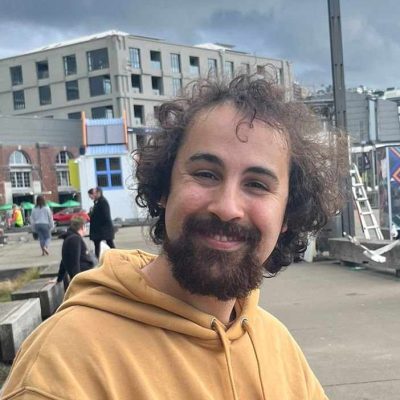
name: Alex Walker, BA, PGDipEd, MEdPsych
institution: Victoria University of Wellington
Alex Walker is a PhD student at Te Herenga Waka – Victoria University of Wellington. He has worked in Aotearoa’s mental health sector since 2016, in crisis phoneline roles and peer support. His research explores the role of experiential knowledge within mental health services, and strategies for honouring the unique epistemic contributions that peer supporters bring to the workforce. Alex is a passionate educator and has served as tutor and teaching assistant for postgraduate Health Psychology courses as well as undergrad Health Policy—in fact, his happy place is in the classroom! His favourite dinosaur is the triceratops, and he is a big fan of elephants.
ORCID ID: https://orcid.org/0000-0001-7464-8342

